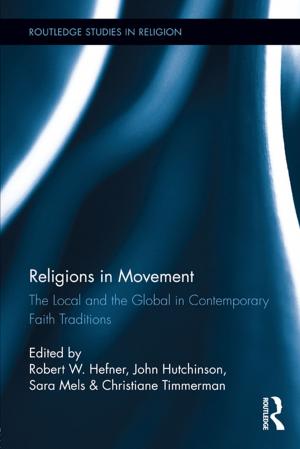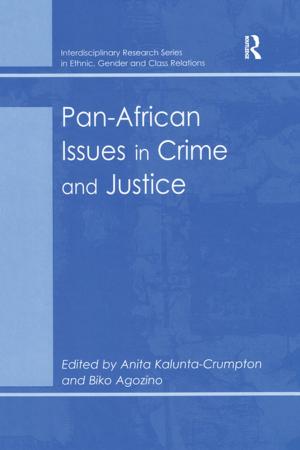The Multilateral Trading System and Human Rights
A Governance Space Theory on Linkages
Nonfiction, Reference & Language, Law, International, Business & Finance, Economics, Economic Development, Social & Cultural Studies, Political Science, International Relations| Author: | Mihir Kanade | ISBN: | 9781351386906 |
| Publisher: | Taylor and Francis | Publication: | September 18, 2017 |
| Imprint: | Routledge India | Language: | English |
| Author: | Mihir Kanade |
| ISBN: | 9781351386906 |
| Publisher: | Taylor and Francis |
| Publication: | September 18, 2017 |
| Imprint: | Routledge India |
| Language: | English |
This book contributes an original theory to understanding human rights and international trade. It offers the ‘governance space’ framework for analysing the linkages and normative relationships between the multilateral trading system (MTS) and human rights regimes. Drawing upon key case studies, the author identifies connecting strands as also gaps in linkage issues. He further examines the ‘right to development’ approach to resolve tensions between these two regimes and demonstrates how the approach may be the most appropriate road map to finding sustainable solutions in balancing human rights and equitable free trade in a complex globalised world.
Presenting new legal analyses informed by current debates drawn from international organisations – the World Trade Organization, United Nations, International Labour Organization – governments, civil society and academia as well as global commitments such as the Sustainable Development Goals, the book proposes a systematic and holistic policy intervention.
This timely and transdisciplinary text will be of great interest to academics, students and scholars of human rights, international trade, international law, development studies, public policy and governance, economics, politics and international relations. It will also be useful to policymakers, think-tanks, human rights advocates, professionals, lawyers, civil society organisations, non-governmental organisations and trade experts.
This book contributes an original theory to understanding human rights and international trade. It offers the ‘governance space’ framework for analysing the linkages and normative relationships between the multilateral trading system (MTS) and human rights regimes. Drawing upon key case studies, the author identifies connecting strands as also gaps in linkage issues. He further examines the ‘right to development’ approach to resolve tensions between these two regimes and demonstrates how the approach may be the most appropriate road map to finding sustainable solutions in balancing human rights and equitable free trade in a complex globalised world.
Presenting new legal analyses informed by current debates drawn from international organisations – the World Trade Organization, United Nations, International Labour Organization – governments, civil society and academia as well as global commitments such as the Sustainable Development Goals, the book proposes a systematic and holistic policy intervention.
This timely and transdisciplinary text will be of great interest to academics, students and scholars of human rights, international trade, international law, development studies, public policy and governance, economics, politics and international relations. It will also be useful to policymakers, think-tanks, human rights advocates, professionals, lawyers, civil society organisations, non-governmental organisations and trade experts.















